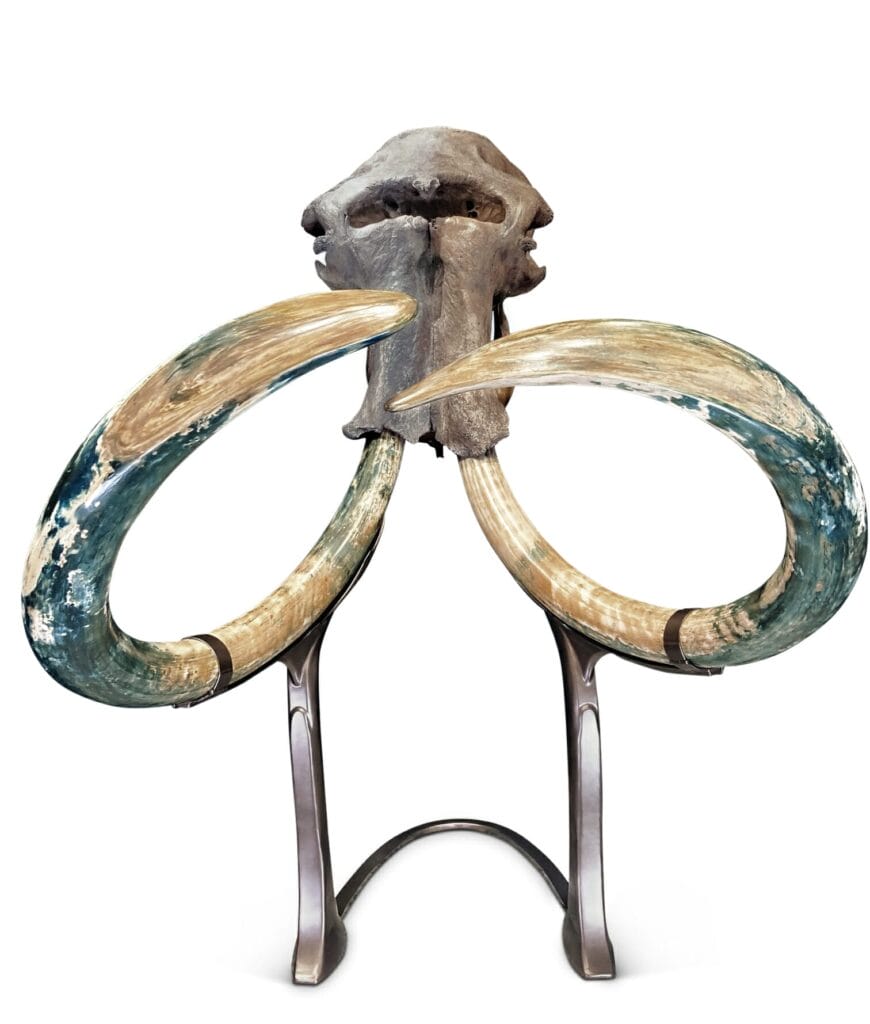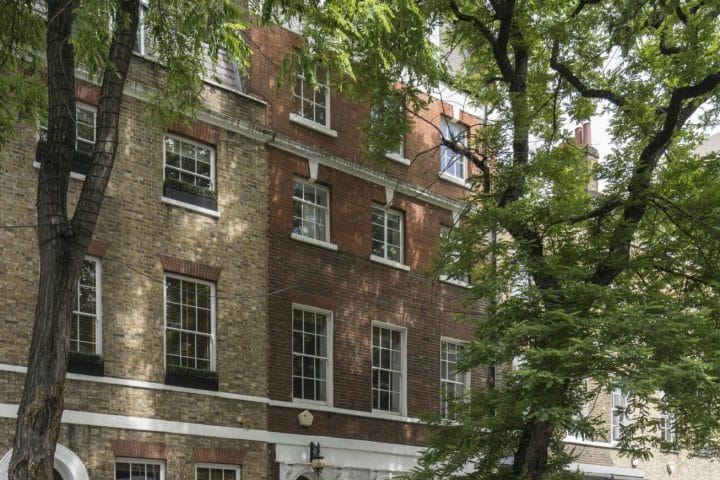Hong Kong 29 September 2023 In celebration of its 50th anniversary in Asia, Sotheby’s is set to stage its first ever Natural History auction in the region. The sale, Prehistoric Earth, offers a glimpse into how the world looked 75 million years ago, featuring two exceptional fossil specimens: an incredibly rare Juvenile Gryposaurus from the Late Cretaceous period (100m to 66m years ago), which carries an estimate of HK$12-20m / US$1.5-2.6m, and a Wolly Mammoth Skull dating from the Pleistocene period (2.6m – 10,000 years ago), which is expected to sell for between HK$2.4- 4m / US$306,862-511,436.
The skeleton of the baby Gryposaur is one of the most spectacular and important discoveries in paleontology to be offered on the market in recent times. A fully matured Gryposaurus adult would have been around 27 feet long. This baby Gryposaurus, found in a cliff face in the Judith River Formation of Montana, in the Western United States, is just under nine feet in length, as it was just a baby when it died, likely in a catastrophic flash flood. Only a tiny handful of Gryposaurs have been discovered; this is the first to come to market, and the first to be found in the Judith River Formation.
A true Ice Age icon, the Woolly Mammoth, an extinct species of Elephantidae, has often been found depicted on cave walls and carved into sculptures by Paleolithic men. Today, mammoth skulls, and skeletons, including mummified frozen remains are featured in numerous public museum exhibits around the world.

Unearthed in Siberia, this Wolly Mammoth Skull features rare blue and blue-green swirled tusks, each measuring almost three metres in length. This distinctive coloration, which only occurs in fossilized Mammoth ivory, was brought about by a mineral called Vivianite, named after mineralogist John Henry Vivian, who discovered it in 1817 in England. Vivianite is a phosphate-rich mineral which can develop decomposing organic matter under specific environmental conditions, in the presence of iron-rich soil, water and phosphate. Woolly Mammoths tusks are rich in phosphate, and those rare examples that fossilize in iron-rich soil with high water content will contain a beautiful swirl of blue and blue-green coloration in the tusks.
Further Initiatives in Asia this Year
As part of the companies 50th anniversary celebrations in Asia, Sotheby’s opened its new building in Shanghai; staged its second auction of Modern & Contemporary Art in Singapore; hosted one of the largest Indochine art exhibitions ever held in Vietnam, and just last month opened a new gallery space in Seoul, South Korea.
In 2024, Sotheby’s will also introduce a new sale calendar in Asia, which will allow for regular live and online auctions to take place throughout the year. These sales will take place in Sotheby’s new Maison, situated in the very centre of Hong Kong. A multi-functional building, it will encompass an expansive state-of-the-art exhibition space and showcase Sotheby’s full suite of offerings – from the company’s signature auctions, private sales and masterworks exhibitions, to art and luxury collectibles available for instant purchase via Sotheby’s Buy Now platform. A Sotheby’s café concept will complement this all-encompassing experience.













